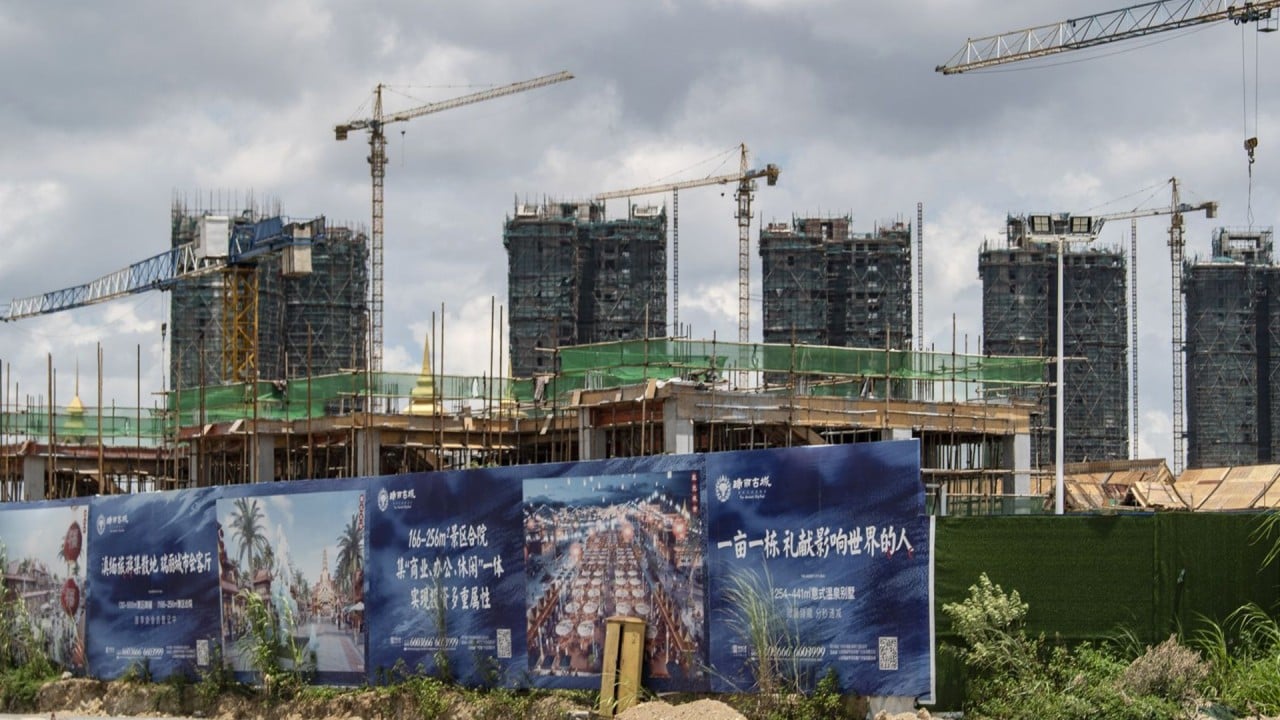
Top 100 Chinese developers saw sales plunge 40 per cent in 2022 as property crisis deepened
- The 100 largest developers ended 2022 with 7.6 trillion yuan (US$1.1 trillion) in sales, down 41.3 per cent, according to the China Index Academy
- It is now the ‘survival of the fittest’ as the gap between the top 10 and the bottom 50 developers on the list is widening, the report said
The 100 largest property developers in China ended 2022 with 7.6 trillion yuan (US$1.1 trillion) in sales, down 41.3 per cent from a year before, according to a report by the China Index Academy (CIA).
The top 100 home builders, including Country Garden, Poly Real Estate and China Vanke, saw their market share shrink to 39.3 per cent in 2022, down by 12.3 percentage points from the previous year, CIA said in its end-of-year report. CIA is one of China’s largest independent real estate research firms.
It is now the “survival of the fittest” in China’s property sector, as the gap between the top 10 and the bottom 50 developers on the list is widening, the report said. The former made 310.7 billion yuan per firm on average, versus 27.6 billion yuan for the latter.
Country Garden managed the most sales in 2022, raking in 464.3 billion yuan by shifting 57.16 million square metres of property.
Poly Real Estate ranked second with 440 billion yuan in sales, followed by Vanke, which generated 417.2 billion yuan. Both firms sold more than 25 million square metres of real estate.
China Resources Land, China Overseas and Longfor also made the top 10, generating over 200 billion yuan in sales.
The number of developers making over 10 billion yuan in sales also dropped, from 158 to 130 in 2022.
CIA said favourable policies designed to rescue the stricken industry did not help the developers much; supply and demand in the market had not recovered significantly.
“The country’s property market as a whole is still in the stage of deep adjustment, and the companies’ cash collection was hindered,” it added.
In December, the firm released another report that suggested home prices in 100 cities fell for a sixth consecutive month, declining 0.08 per cent after falling 0.06 per cent in November.
Raymond Cheng, head of China and Hong Kong research at CGS-CIMB Securities, said the 16 measures rolled out by Beijing in November to support the property sector were “helpful but insufficient.”
“They mainly focus on helping developers solve short-term liquidity problem but not sales,” he explained.
He expects the government to roll out more policies to stimulate developers’ sales in 2023. They could take the form of lower down-payments for home purchase, lower mortgage rates or home purchase subsidies.
Some cities have already taken the lead, introducing measures aimed at stimulating demand.
Zhangzhou, a city in the Chinese coastal province of Fujian, plans to hand out subsidies of up to 30,000 yuan on home purchases.
The property sector is undergoing something of a reshuffle as the gap between the biggest players and the rest of the pack widens.
“Developers such as Country Garden, CIFI, KWG, and Agile with some short term liquidity pressure should benefit the most as now they have more time to manage their debts,” Cheng said.


